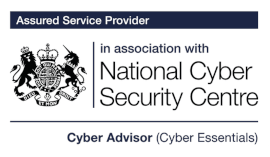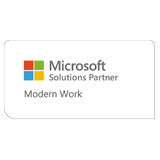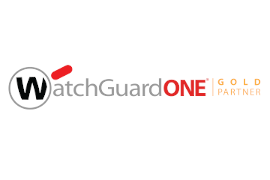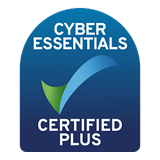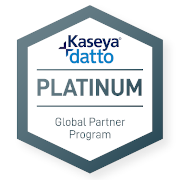How can I stop my business getting hacked?
![]()
In today’s interconnected world, where technology is pivotal to business operations, the need to be cyber aware is more crucial than ever.
As cyber attacks continue to evolve, businesses face an increasing risk of falling victim, protecting your business requires a proactive approach that encompasses various aspects of cyber security.
Yourself and your employees are often the first-line defence against cyber threats, however a huge percentage of cyber breaches are the result of human error causing unauthorised access.
But how can you protect your business getting hacked? Here’s a few key strategies to becoming more cyber aware…
Securing Your Business: A Guide to Cyber Awareness
Keep your systems backed up
Backing up your business data is an essential part of cyber security. In the event of a ransomware attack or data breach, having a recent backup of your data can hugely save your business from data loss and minimise downtime.
It’s important to check that your regular backups are reliable and can be quickly deployed when needed.
Here at Geeks, we take backups seriously. Our clients benefit from daily backups, stored both onsite and offsite, which are checked and validated by our experienced engineers. We can also offer replication alongside backups to form part of your business continuity and disaster recovery (BCDR) plan. Replication gives you a real-time copy of your data, hugely reducing the risk of data loss and minimising downtime.
Fortify your digital assets with strong authentication
An obvious, but surprisingly often ignored, pillar of cyber security is the use of strong, unique passwords.
Did you know that reportedly one of the most used passwords in the UK is still ‘password’ in 2023? Weak, common passwords like this are like an open invitation to cyber criminals.
It’s important to ensure yourself and your team create passwords that are complex, incorporating a mix of uppercase and lowercase letters, numbers and special characters such as ! or %. You should avoid easily guessable information such as birthdays and pet names.
You could consider using password management tools to generate and store complex passwords securely, reducing the risk of unauthorised access.
You can also add an extra layer of security with multi-factor authentication (MFA), which requires users to provide multiple forms of verification before granting access. For example, we recommend using the Microsoft Authentication app which sends a push notification to your device, so you can block any unknown logins.
Protect your files from unauthorised access
The physical security of where you’re working from is also important. When leaving your computer, even if it for a moment, you should get into a good habit of locking your screen, this can be easily done by pressing the Windows shortcut, Windows+L (Cmd+L for Apple devices). This is especially important for public spaces, as you never know who may be swooping in on unattended devices!
Additionally, it’s important to have a good understanding of what permissions each employee has, permissions should be limited to what’s required for their job role as not every employee needs access to sensitive information, so it’s a good idea to tailor access rights to specific responsibilities.
Don’t get hooked
Phishing emails remain one of the most prevalent cyber attack methods used by cyber criminals. You should train yourself and your team up on how to identify phishing attempts by scanning emails for red flags.
You should check for misspelled email addresses, unfamiliar sender names, a sense of urgency and unexpected attachments or links.
It’s important to verify the legitimacy of any request for sensitive information through a trusted communication channel before responding.
Phishing email tactics are constantly evolving to become more believable, many phishing emails use impersonation, where they impersonate large businesses such as Microsoft and Google or members of your team. A common phishing tactic is also to include links to false login pages, so you inadvertently give them your login details, believing you are logging into the legitimate webpage.
It’s important to regularly update yourself on emerging phishing tactics to keep informed and vigilant.
Empower yourself and your team with training
One way businesses are educating their employees about the various ways to protect themselves against cyber crime is through cyber awareness training.
Cyber awareness training is a proactive step towards building a resilient defence against cyber threats. This can include being educated on the various forms of cyber attacks such as phishing, social engineering, and malware.
You and your team should encourage a culture of scepticism, where you question unexpected or unsolicited communications, especially where sensitive information is involved such as login details.
Here at Geeks, we offer cyber awareness training as a service, supplying online training, as well as simulated phishing attack exercises, which can be valuable tools to test and reinforce the lessons learned during the training, to help your team recognise and avoid potential threats.
Staying cyber resilient
With cyber attacks ever evolving, it’s important to keep yourself and your team cyber aware to provide a strong defence and significantly reduce the risk of a cyber incident affecting your business.
Cyber security is not a one-time effort, but an ongoing commitment to staying informed and adapting to emerging threats. By fostering a culture of cyber awareness within your business, you empower your team to be the first-line defence against cyber threats, ultimately safeguarding the future of your business.
Looking to strengthen your cyber security? Get in touch!
